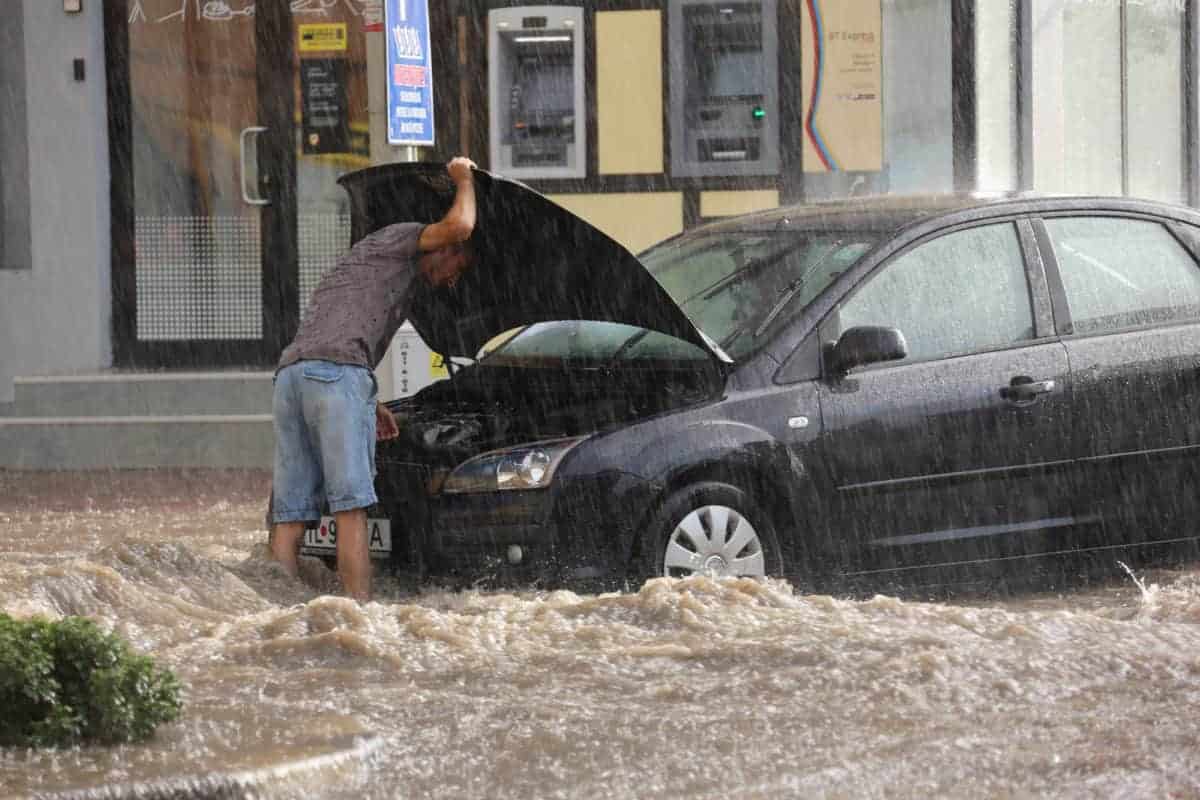What is a Hydrolocked Engine: Causes, Signs, and Prevention
Have you ever heard of a hydrolocked engine? It’s a term that may not be very familiar to everyone, but it is definitely something that every car owner should know. A hydrolocked engine can cause severe damage to your vehicle and leave you with costly repairs. In this article, we’ll take a closer look at what a hydrolocked engine is, its causes, signs, and how to prevent it from happening.

Introduction
Before we dive into the details, let’s first define what a hydrolocked engine is. Simply put, a hydrolocked engine is an engine that has filled with water instead of air and fuel. This can happen when water enters the engine’s combustion chamber, preventing the pistons from moving up and down properly. The result is a stalled engine, and in some cases, significant engine damage.
How Does a Hydrolocked Engine Happen?
Now that we have a basic understanding of what a hydrolocked engine is, let’s explore the various ways it can happen.
Driving through Floodwaters
Driving through flooded areas can lead to a hydrolocked engine. When a vehicle is driven through deep water, the water can be forced into the engine through the air intake or other openings.
Cooling System Failure
If the cooling system fails and allows water to enter the engine block, a hydrolocked engine can occur. This is usually caused by a cracked engine block, a damaged head gasket, or a failed water pump.
Improper Maintenance
Neglecting routine maintenance, such as failing to change oil, can cause a hydrolocked engine. When oil levels are low, it can cause the engine to seize and eventually hydrolock.
Signs of a Hydrolocked Engine
It’s essential to know the signs of a hydrolocked engine, so you can prevent further damage to your vehicle. Here are some of the most common signs:
Engine Will Not Start
When you turn the ignition key, and the engine won’t start, it could be a sign of a hydrolocked engine. In some cases, the engine may start but will quickly stall out.
Noises
If you hear unusual noises coming from the engine, such as grinding, clanking, or knocking sounds, it could be a sign of a hydrolocked engine.
Smoke or Steam
If smoke or steam is coming from the engine, it could be a sign that water has entered the combustion chamber.
Prevention Tips
Now that we know what a hydrolocked engine is and how it can happen, let’s look at some prevention tips.
Avoid Driving Through Floodwaters
The easiest way to prevent a hydrolocked engine is to avoid driving through flooded areas. If you must drive through water, keep it to a minimum depth, and drive at a slow and steady pace.
Regular Maintenance
Regular maintenance is crucial in preventing a hydrolocked engine. Make sure to change your oil as recommended and have your cooling system inspected regularly.
Be Prepared
If you live in an area that is prone to flooding, it’s a good idea to be prepared. Keep emergency supplies in your vehicle, such as a flashlight, first aid kit, and a waterproof bag with spare clothes.
Conclusion
In conclusion, a hydrolocked engine is a severe issue that can occur in any vehicle. It is caused by water entering the engine’s combustion chamber, preventing the pistons from moving up and down properly. To prevent a hydrolocked engine, avoid driving through floodwaters, maintain your vehicle regularly, and be prepared. By following these simple tips, you can avoid costly repairs and keep your vehicle running smoothly.
FAQs
- What happens if you try to start a hydrolocked engine? If you try to start a hydrolocked engine, it can cause significant damage to your vehicle, such as bent or broken connecting rods, damaged cylinder walls, or a cracked engine block.
- Can a hydrolocked engine be fixed? Yes, a hydrolocked engine can be fixed, but it may require extensive repairs or even engine replacement, depending on the severity of the damage.
- How much does it cost to repair a hydrolocked engine? The cost of repairing a hydrolocked engine can vary greatly depending on the extent of the damage. It can range anywhere from a few hundred to several thousand dollars.
- Can you prevent a hydrolocked engine by waterproofing your engine? Waterproofing your engine can help prevent some water damage, but it is not a foolproof method for preventing a hydrolocked engine. It’s always best to avoid driving through floodwaters and perform regular maintenance on your vehicle.
- Can insurance cover the cost of repairing a hydrolocked engine? It depends on the type of insurance policy you have. Comprehensive coverage may cover the cost of repairs due to flood damage, including a hydrolocked engine. However, it’s important to review your policy carefully and speak with your insurance provider to confirm coverage.
